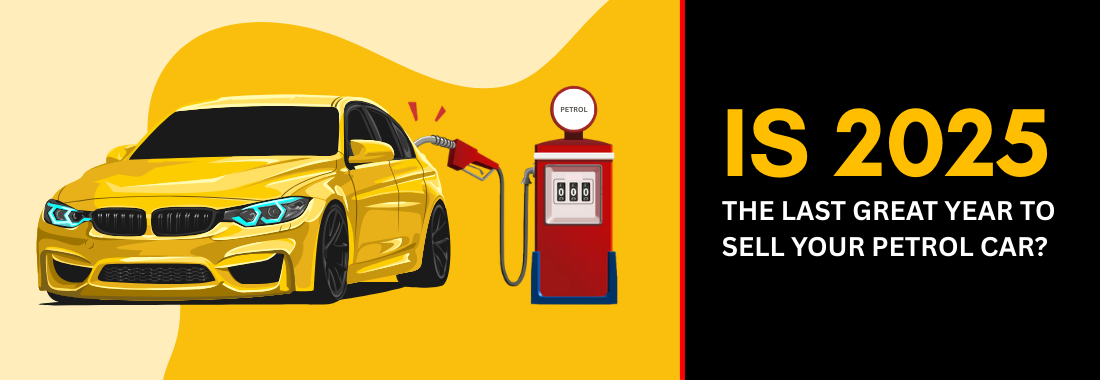Is 2025 the Last Great Year to Sell Your Petrol Car?
01/09/2025luxury car, petrol car, premium cars, Sell my car
The UK car market is in the middle of a historic transition. With the government’s 2030 ban on new petrol and diesel car sales still on the horizon — and electric vehicle (EV) adoption accelerating — many owners are asking the same question:
👉 Should I sell my petrol car now, or wait?
2025 could very well be the last strong year for petrol resale values. Here’s why timing matters more than ever.

1. The Countdown to 2030 Is On
By 2030, the sale of new petrol and diesel cars will be banned in the UK. While that’s five years away, the shift in buyer psychology is already here.
Buyers know the future is electric.
Petrol cars are starting to feel like “short-term purchases.”
Each year closer to 2030, resale appetite weakens.
In simple terms: the closer we get to the ban, the harder it becomes to sell your petrol car at a good price.
2. EV Incentives Are Accelerating the Shift
The UK government and employers are making EVs more attractive:
Salary sacrifice schemes lower the monthly cost of EV ownership.
Tax benefits reduce running expenses compared to petrol.
Improved charging networks make EVs practical for more people.
As more drivers make the switch, petrol cars risk being left behind. That shift is already visible in buyer preferences — with compact EVs and hybrid SUVs rising in demand in 2025.
3. Running Costs Are Tilting Against Petrol
Petrol owners are facing rising costs across the board:
Fuel prices remain volatile.
Insurance premiums are climbing.
ULEZ (Ultra Low Emission Zones) are expanding, making older petrol/diesel cars more expensive to drive in cities.
Servicing costs are higher for older models compared to EVs, which have fewer moving parts.
For buyers, this makes petrol cars a tougher sell. For sellers, it means your window to secure a strong return is shrinking.
4. Used Car Supply Is Normalising
During the pandemic, supply chain issues made used cars more valuable. In 2023–24, many petrol cars held their value unusually well.
But in 2025, new car supply is stabilising — and buyers have more choice again. That means petrol cars, especially older models, will face steeper depreciation compared to EVs and hybrids.
5. The Plate Change Factor
The UK’s September 2025 ‘75’ plate is another reason not to delay. Once the new plate lands, cars with ‘72’ and ‘23’ registrations instantly look older, and buyers often expect a discount.
Combine this with the EV shift, and the resale gap widens even further.
What This Means for Petrol Car Owners
If you own a modern petrol car (3–5 years old): 2025 could be the last year to sell before values start sliding faster.
If you own an older petrol car (7+ years): Running costs and ULEZ restrictions will only reduce buyer interest over time.
If you’re considering upgrading: Selling now protects your equity and gives you stronger bargaining power.
The Bottom Line
2025 is shaping up as a tipping point. Petrol cars still have solid demand today — but that demand is being eroded by EV incentives, rising costs, and the 2030 countdown.
For many owners, this year represents the best opportunity to secure strong resale value before depreciation accelerates.
At PCBS, we track these trends daily and help car owners sell at the right time for the right price. Don’t wait until your car is harder to shift — act while demand is still in your favour.
👉 Thinking of selling in 2025? Call us on 0330 822 7081 or get your free valuation today and let’s secure your best deal before the market shifts.
